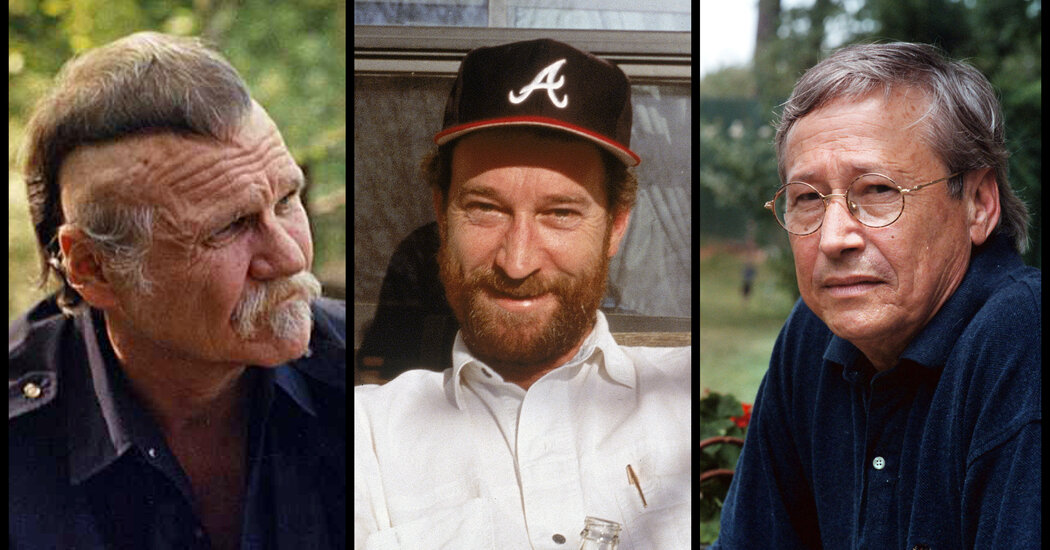
Some of their work has aged poorly. If the Rough South crowd was not exclusively a boys’ club, it was a white one. I wish a few of these writers had done certain things differently. For the most part they skittered around the subject of race and around what the critic Louis Rubin called the “impossible load of the past.” But Hannah throws the N-word around too freely in “Airships,” usually but not always in the voice of an addled narrator steeped in the prejudices of an earlier time.
To his credit, Hannah grew out of this predilection, and his best stories — collected in a euphoric career retrospective titled “Long, Last, Happy” — are not marred by it. The sexism in some of Crews’s work is ripe, but it generally bleeds over into obvious parody. (Kim Gordon, Lydia Lunch and Sadie Mae once formed a thrash supergroup called Harry Crews.) If Norman Mailer had handled snakes and was into muddy, open-wheeled auto sports, he might have sounded a bit like Crews.
Here’s the thing I came to say, though. I feel lucky to have found Harry, Barry and Larry when I did. They provided me, in a way more highbrow writers might not have, with core literary values. Among them: Dry is better than wet. Funny beats somber. Liberal (in the small “l” sense) is better than conservative. Writing about ordinary lives is, nine times out of 10, more valuable and more interesting than reading about cosseted or artistic ones.
There is more. Like the filmmaker Mike Leigh, Harry, Barry and Larry refused to condescend to working-class people. (One character in “Airships” announces, to no one in particular, that he went to junior college, “which is to say, I can read and feel fine things and count.”) Crews and Brown knew what it was to chop cotton; Brown worked factory jobs. They were in absolute sync with the world’s misfits, dissidents and jokers. All three had a mistrust of authority. Few writers have better lived up to Charlotte Brontë’s epic declaration in “Jane Eyre”: “I would always rather be happy than dignified.”
These writers barely existed in publications such as The New York Review of Books. (No Crews book was reviewed there. One of Brown’s was, in a group review. Three of Hannah’s were, also in group notices, the steerage of arts criticism.) I sensed early that if I took too many cues from that austere publication, my reading life would be as cold and stunted as a pebble in a middling Bergman movie.




